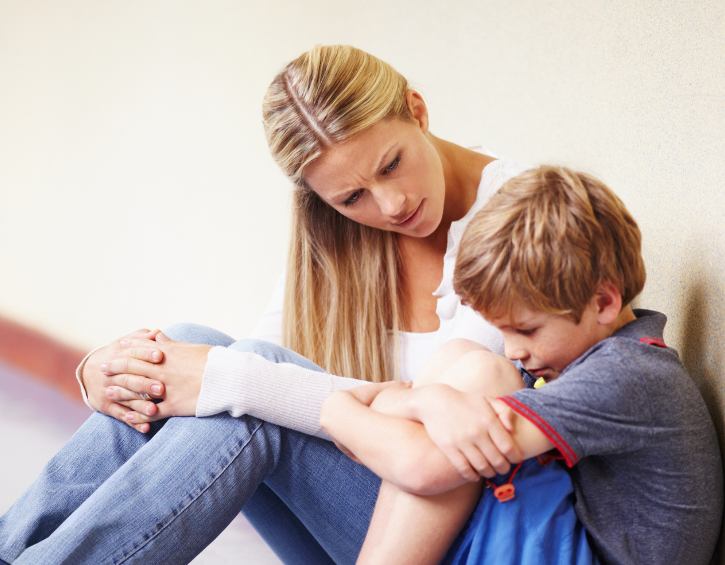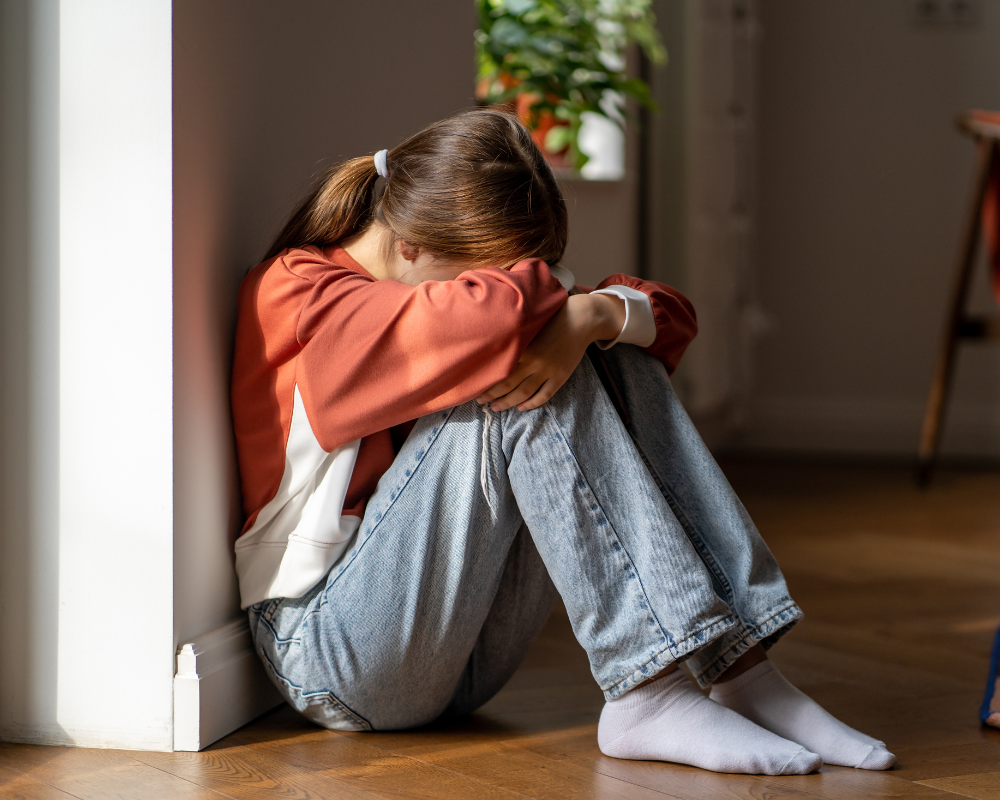Are You Making Your Kids Depressed?
We might laugh it off—oh, how dramatic are kids acting like adults, being depressed and all? Except, it’s no laughing matter. Depression is widespread among children, just as it is among adults. But what is depression in children? How does it affect them? How might some of the things we do lead to our children experiencing feelings of depression, and how can we avoid this?
Understanding Depression: What Is It Really?
Is depression a mental disorder, an incurable disease, or just a temporary state of mind? Depression is a disorder that affects many people, often causing intense feelings of sadness and hopelessness. Severe depression can bring about physical effects as well, such as loss of appetite, tiredness, and an overall unwillingness to interact with others.
The common misconception is that depression only affects adults, but that can’t be further from the truth. Studies have shown that depression is widespread in children, and it often comes hand in hand with anxiety, causing them emotional issues such as fear and worry. This can change a child’s behavior, resulting in a lack of interest in play, not wanting to hang out with other kids, changes in their sleeping routines, lack of energy, and emotional problems that manifest in thoughts of unworthiness, low self-esteem, and guilt. In severe cases, depression in children is even known to cause self-harm and suicidal thoughts.

Are Parents Unknowingly Causing Depression in Their Children?
What’s worse is that as a parent, you might be the one who’s unknowingly causing depression in your children. But how, you might ask? Depression in children is usually caused by their surroundings and the environment in which they are in. Yet, we might tend to blame it on external situations instead of realizing that parents are likely to be one of the biggest causes of depression in their children.
Yes, there are so many contributors to child depression that it is impossible to control every factor that may cause depression in a child. We do, however, know that their parents play a big part simply because kids spend the most time with their parents in their early years.
However, since most parents believe that everything they do is for the good of their children because they only want the best for them, most parents might not even realize that what they do daily could make their kids depressed.

Parental Pressure
As children grow and mature, expectations from parents and others often increase. Although expectations are a necessity for development, children usually go into depression when the expectation and parental pressure are too great. Some parents expect their kids to achieve a certain level of performance to score well in their exams and get better jobs.
However, such expectations and parental pressure driven by hyper-competitive reasons will only cause children to grow up thinking that the only way to make their parents and themselves happy is by achieving high standards and maintaining a perfect appearance in front of everyone all the time. But such high standards can be impossible to achieve, so children fall into a depression, thinking they have no value and that they are useless.
This happens a lot, especially during a child’s schooling years, as parents might often pressure their child’s academic performance or force them to study what they do not like. One common trait in depression is the lack of energy, concentration, and motivation, resulting in an unwillingness to be part of activities or day-to-day things.
This is why many depressed children often refuse to go to school. Although it is recommended that children with depression continue to be active and be in school to interact with other children, it is, however, very harmful for parents to force their children into these activities. Instead, parents should be encouraging in their words and help uplift their mood.
Helicopter Parenting
This is another significant contributor to depression in children. When parents are over-involved in their kids’ lives, this is known as helicopter parenting because parents are seen hovering over every detail of the child’s life.
Overactive parenting often results in a lot of anxiety, as kids end up feeling like they are being controlled and have no space to grow and develop. Studies have shown that children who grew up with over-involved parents are often less open to new ideas, lack confidence, and are often more self-conscious than their peers.
Shaming
Parents who tend to be very overbearing often also shame their kids. Yet, shaming, especially when done in public, not only causes a lack of self-worth to develop in a child but can also lead to depression.
Adults who were shamed by their parents when they were growing up are often found to have a fear of failure, which in severe cases results in an inability to make decisions or a perfectionism that worsens their depression and anxiety.
Withdrawing Affection and Attention
This is another form of parenting that severely affects a child’s mental health. It communicates to children that they are required to perform to a certain level, and only then will they receive their parents’ love, which is only given when certain conditions are met. This is often referred to as critical parenting and is consistently identified with depression in children.
Divorce
The effect of parental divorce on children’s mental health is significant. Statistics have proven that children who experience divorce are at high risk of developing clinical depression and, in severe cases, suicidal tendencies. This can be due to many reasons. Families, where parents are always fighting, have consistently resulted in children becoming depressed.
Their parent’s divorce may extremely sadden children, and it might spiral into depression if left unchecked. A lack of parental support also plays a part, as the child now only lives consistently with one parent. They thus experience a shortage of places and people to turn to when they face emotional challenges. It is also widespread for a child’s mental health to be affected if the parent or both parents also develop depression due to the divorce.
Criticism
As mentioned in critical and helicopter parenting, criticism that is undue or overbearing often leads to the development of depression in a child. A parent might also constantly compare their child with other children or recognize only their child’s failures instead of praising their accomplishments. All these critical behaviors in parenting consistently result in low self-esteem, feelings of hopelessness, and often an unhealthy need to have their successes recognized. This causes the child to rely heavily on external validation to function emotionally.
Abuse
Abuse is a key perpetrator of depression. Mental abuse, physical abuse, sexual abuse, and even verbal abuse—all of these are very likely to lead to depression in children who face such abuse. In severe cases of abuse, children have even been recorded to develop post-traumatic stress disorder.
Preventing Depression in Children
There are a lot of ways that parents can cause depression in their children. Are there any ways that parents can prevent depression in their children? We can’t all be perfect parents, but we can try to do our best to be the emotional support that our children need us to be and let them know that we are always here for them and that they can always come to us in times of trouble when they face challenges or are feeling stressed.
This means spending quality time with your children and having honest conversations in which you allow your child to speak without feeling judged or criticized. This honest and open space will enable children to openly discuss struggles and challenges in their lives, which is one critical thing that can prevent depression.
When children are aware and assured that they have their parents’ support no matter what they go through, they will have higher self-esteem and greater confidence in life.
Final Thoughts
Having this kind of open and honest relationship with our children also means that our kids can feel connected and supported. This connection and support are essential when it comes to bolstering our kids’ faith and knowing that there are people who have their back no matter what and who are willing to guide them through life and weather even the toughest of storms together. So even if they encounter great hardships, emotional issues, or even depression, they know that they can count on their parents to help them through it together.

